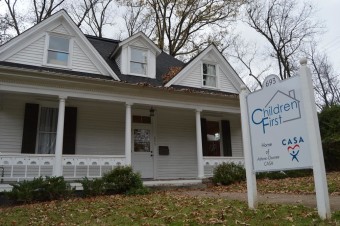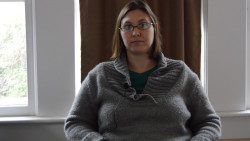Law enforcement officers in the South made 445,928 drug arrests in 2014.
Georgia is keeping pace with its neighbors, with more than 42,000 drug arrests in that period, but it’s taking a markedly more compassionate stance than neighboring states when the drug user is a pregnant woman.
Four years ago, Georgia lawmakers rejected a bill that would have made it possible to file criminal charges against pregnant women who used drugs and later miscarried.
Women’s rights advocates said the bill’s vague wording that criminalized “human involvement” of any sort in miscarriages was a step toward establishing more fetal rights in Georgia law. Fetal rights are a controversial subject that go beyond disputes over abortion. (Some states, for instance, file feticide charges when an attack on a pregnant woman causes an end to her pregnancy, while other states do not.)
“If an individual is able to abuse or neglect the unborn, that is suggesting that the unborn or fetuses have certain rights that are to be protected or interests that are to be protected and that, going a step further, in some instances those rights or interests can trump those rights or interests of another individual,” said Andrea Dennis, a UGA Law School professor who formerly prosecuted child abuse cases in Washington, D.C.
While Tennessee is putting drug-addicted pregnant women in jail and North Carolina’s Legislature is thinking about doing the same, Georgia is focusing on treating the underlying addiction through accountability courts.
These courts are the civil counterparts to the criminal justice system, said Danny Stevens, court coordinator for Athens-Clarke County Family Dependency Treatment Court. The ultimate goal is to have accountability courts implemented statewide, but family-specific treatment programs account for only a small percentage of accountability courts.
“We want to have our folks get clean and sober and stay clean and sober, and we want them to be reunified with their children,” he said. “So the whole goal is to get them clean and have their children removed from foster care and placed back in their custody.”
‘You can see hope’
Each woman is assigned a specific treatment plan, which she works through with supervision by the Department of Family and Children Services (DFCS). Each has about a year to complete the plan. During this time, if the children in her custody are considered to be at risk of neglect or being abused, DFCS places them in foster homes until the parent completes the case plan, Stevens said.
That’s not a long time to kick an addiction because of almost inevitable relapses and setbacks, Stevens said, but the consequence of failing is a strong motivator.
The worst punishment that most women can imagine would be losing custody of their child or children, said Stevens. If they’re still using drugs when the deadline arrives, “the department more than likely is going to ask the judge to terminate the parental rights . . . and allow that child to be adopted,” he said.
Volunteers from the court-appointed special advocates for children program (CASA) make sure the child’s interests always come first, said Susie Weller, volunteer coordinator for the Athens-Oconee CASA program.
Georgia’s decision to handle this situation as a civil matter does not mean that the state is softer on crime than its neighbors, Dennis said.
Although civil proceedings are preferable to criminal charges, Dennis said she would like to see the state move toward a public health model that addresses social and economic conditions that raise the risk for drug use in the first place.
“Those who are impoverished or otherwise vulnerable may be extra stressed by concerns about employment, and child care, and housing, and food security,” she said. Such stressors sometimes lead them to use substances as a coping mechanism, she added.
Living in poverty is worse for a child’s health and well-being than being born to drug abusers, said addiction researcher and assistant professor in UGA’s School of Social Work Orion Mowbray, citing long-term research studies.
Pregnant women who abuse drugs know that this is bad for their own health and for the pregnancy, and they know that society condemns them for it, but in many cases they also know that treatment opportunities are limited. All this makes it hard for women to admit they need help with their addiction, Dennis said. The threat of criminal prosecution or civil sanctions raises yet another barrier.
“One of the things that we know really well about working with people who have any kind of addiction is that coming from a moralistic standpoint, using some kind of judgmental tone, is never, ever, ever helpful,” Mowbray said.
One of the biggest obstacles is getting parents into programs. But once they’re in, they have the support and therapy they need to be successful, Weller said.
“You can see progress,” Weller said of the parents she has worked with. “You can see improvement. You can see hope.”
Leigh Beeson is a graduate student at UGA in the health and medical journalism program. She had a bachelor’s degree in communications and was editor-in-chief of her undergraduate university’s newspaper.


